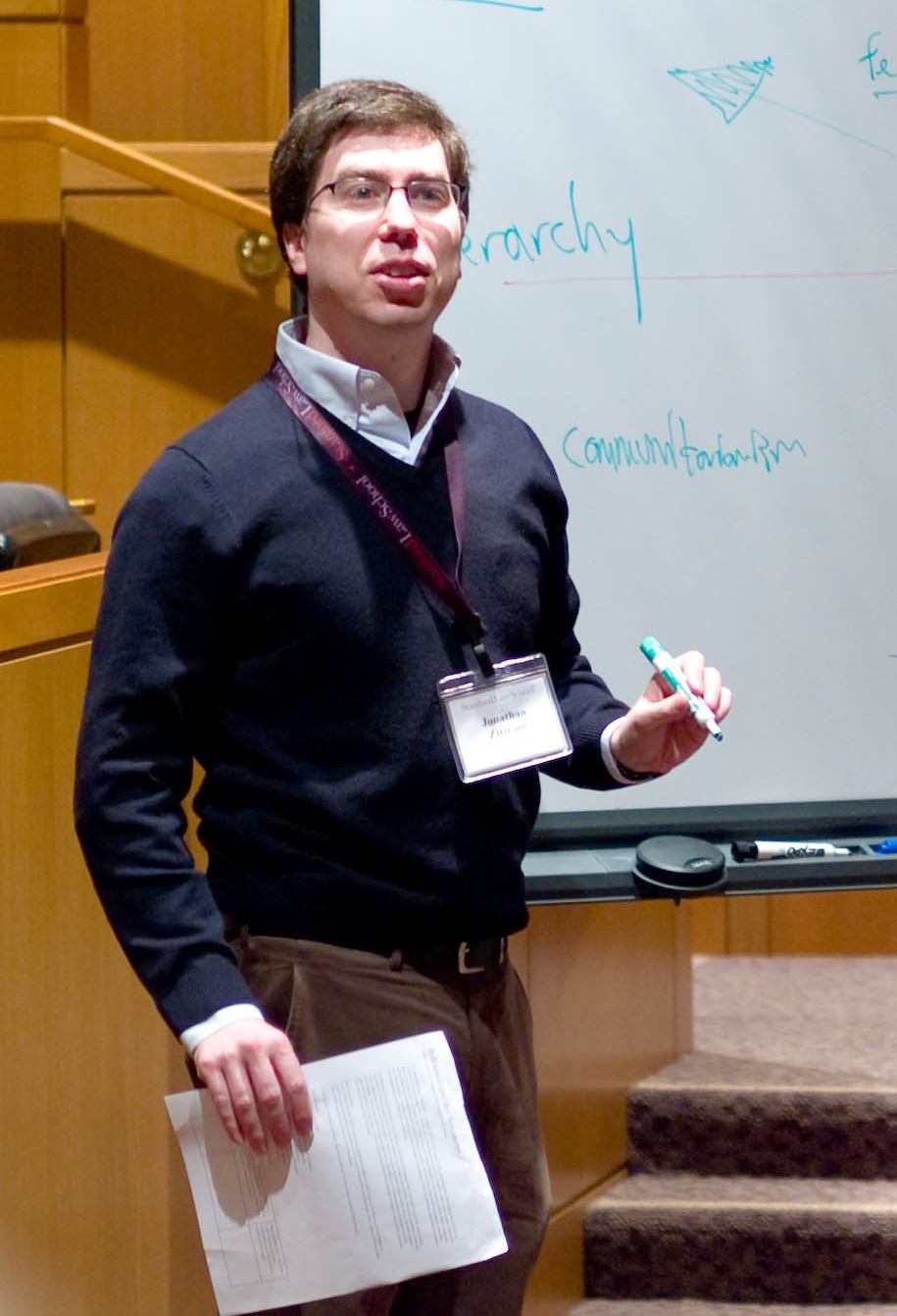The rest of the world doesn't want to see US hegemony here, in large part just for symbolic reasons.

"Jonathan L. Zittrain" is an United States/American professor of cyber law/Internet law at Harvard Law School and the Harvard Kennedy School, a professor of computer science at the Harvard School of Engineering and Applied Sciences, and a faculty co-director of Harvard University/Harvard's Berkman Center for Internet & Society. Previously, Zittrain was Professor of Internet Governance and Regulation at the Oxford Internet Institute of the University of Oxford and visiting professor at the New York University School of Law and Stanford Law School. He is the author of The Future Of The Internet/The Future of the Internet and How to Stop It as well as co-editor of the books, Access Denied (MIT Press, 2008), Access Controlled (MIT Press, 2010), and Access Contested (MIT Press, 2011).
Zittrain works in several intersections of the Internet with law and policy including intellectual property, Internet censorship/censorship and filtering for content-control software/content control, and computer security. He founded a project at the Berkman Center for Internet and Society that develops classroom tools. He is a co-founder of Chilling Effects, a collaborative archive created to protect lawful online activity from legal threats that was created by Wendy Seltzer.
More Jonathan Zittrain on Wikipedia.The other issue it raises is the kind of speech we'll hear. The strongest speech people see when they're voting is the speech when they're going to the ballot.
This is completely irrelevant. Let me repeat that, this is completely irrelevant. Domain names are nearly meaningless at this point.
Congress was willing to set guard dogs -- paid by the government -- around anything that private industry could come up with to protect works even if those protections were excessive.
What is law, ultimately, but the exercise of force?
So there's one set of countries, anchored by Iran, Cuba and China, that would like to see some process by which governments of the world have a much larger hand in controlling the shape of the internet.
To me, Congress would have been wise to say 'If you build a system that approximates the balance of rights with copyright itself, we'll protect it. If you go overboard, you are on your own,' ... It would have been a harder act to create because it would have had a gray zone ... but that's what we pay legislators to do -- to write subtle legislation.
Online auction sites have been a fairly active area of dispute, ... is still unclear.
Copyright © 2024 Electric Goat Media. All Rights Reserved.